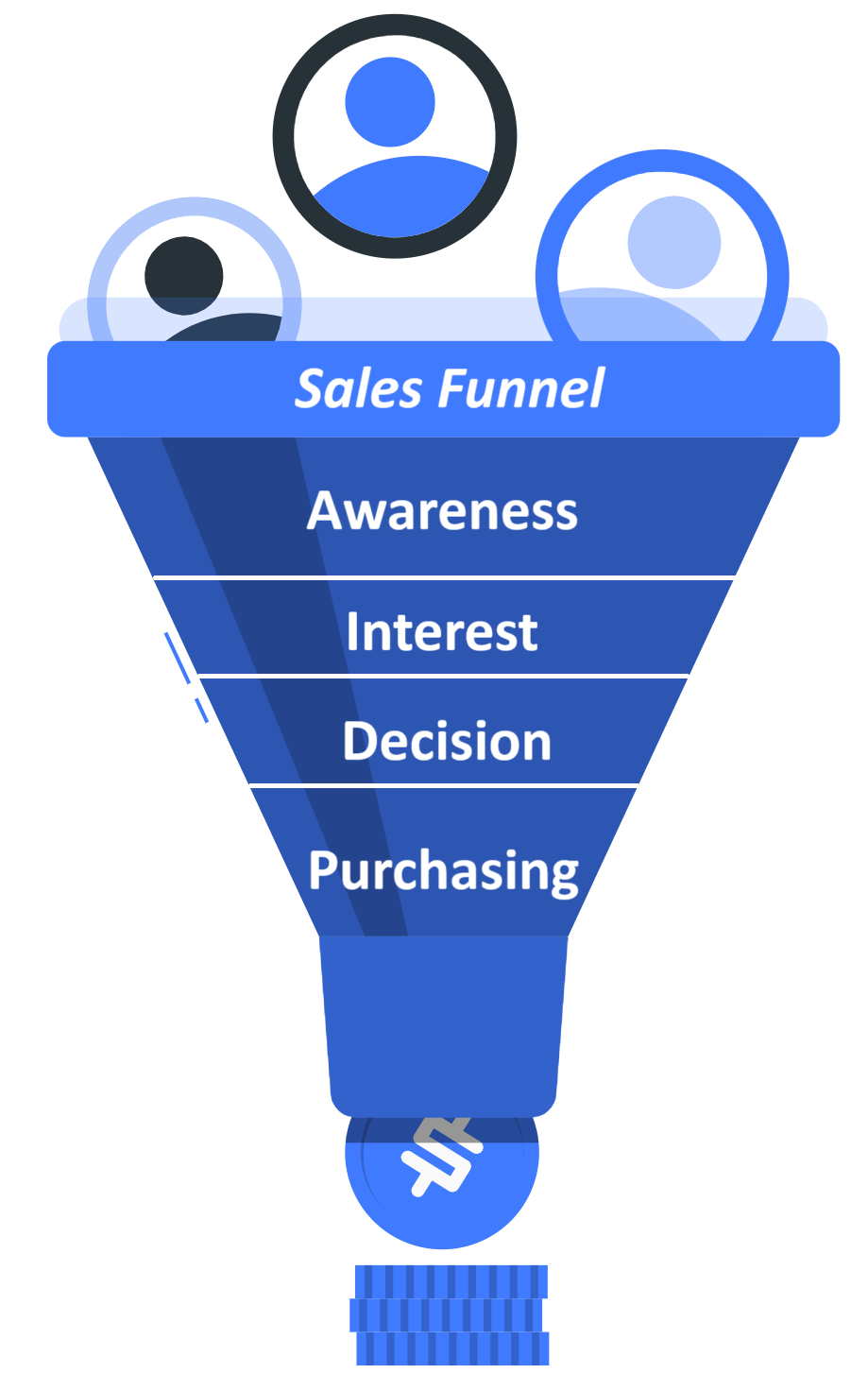What is sales?
Jan 1, 2025 -
What is sales?
Sales is a concept that includes all activities related to selling a product or providing a service to a customer or business.
Sales is a very broad concept and includes many details related to types, terms, and strategies.
In general, it can be defined as the process of exchanging a specific amount of money for a product or service and it takes place between two parties, the seller and the buyer, where both (the seller and the buyer) must agree to specific terms related to the sale transaction.
The importance of sales comes from being the primary source of income for businesses.
Types of sales:
Sales are divided into several types, and understanding these types helps determine the nature of sales within companies, and thus apply appropriate strategies accordingly.
These different types of sales depend on selling transaction type, customer type, selling environment, and selling approach.
-
B2B sales: “Business to business” sales, means a business selling a product or service to another business, like when a company selling a software solution to another business.
-
B2C sales: "Business to consumer” sales, means a business selling directly to individual customer, like when you make a purchase at a shop or online.
-
Direct sales: It is to sell a product or service to the customer directly without intermediaries.
-
Indirect sales: it is to sell a product or service to the customer through intermediaries, such as distributors and retailers.
-
Inside sales: It includes sales process that conducted remotely by phone, email, or the Internet rather than interacting with the customer face-to-face.
-
Outside sales: It includes sales process that take place through face-to-face communication with the customers outside the company, as this requires salesperson to visit customers personally to provide a service or product.
-
Agency sales: It is a sales process that conducted through an agency or intermediary and it is one of the types of indirect sales, where the agencies sell services or products on behalf of the company and receive a commission or fee for each sale they make.
-
Consultative sales: this type is mainly based on understanding the customer's needs and providing customized solutions. The salesperson becomes a consultant who builds a trust and strong relationship with the customer through listening and asking appropriate questions and providing solutions accordingly.
-
SaaS sales: “Software as a service” sales. This type refers to the process of selling software online through a monthly or annual subscription. The customer does not need to install it on local devices, rather the service is provided via the cloud, and it can be accessed over the internet. Customer relationship management systems (CRM) are an example of SaaS.
-
Account based strategy (ABS): In this type of sales, specific high-value accounts or sectors are targeted rather than large, random number of customers, and a personalized selling strategy is created that suits the needs of those high-value accounts.
Common sales terms
-
Lead: is a customer who has shown an interest in the product or service offered by the business through website visits or inquiries but hasn't yet made any purchases.
-
Prospect: is a potential customer who has been qualified or evaluated by the sales team as having a higher likelihood of becoming a customer. prospect shows more interest to purchase like interaction with salesperson or requesting a quote.
-
Conversion: in general, it is the conversion of prospects or leads into customers (make an actual purchase). Linked to this term, there is an important indicator of the effectiveness of sales strategy which is (conversion rate) as it measures the percentage of prospects or leads who have been converted into customers.
-
Sales funnel: It includes the stages that a lead goes through from knowing about the product or service (awareness) to interest to decision, then purchasing.

- Customer relationship management (CRM): A technology used to help companies manage their relationships and interactions with all customers by tracking and managing the sales funnel and thus improving sales efficiency.
For more information about CRM, go to: What is CRM System and why to use it?
The most important sales skills:
To achieve business goals of increasing sales, salespersons must have a set of basic skills necessary to attract customers, build strong relationships, provide satisfactory services, and build trust.
• Listening skills: active and careful listening to the customer helps salespeople to understand customer’s needs and problems, provide appropriate solutions and build trust.
• Time management: The process of organizing and prioritizing tasks in a specific time is an essential skill to improve performance and increase sales.
• Communication skills: Effective communication with customers through verbal and written communication, body language, persuasion and conflicts resolving helps understanding customer’s needs anda chieving business goals.
• Emotional intelligence: The ability to manage and respond to customer’s objections and concerns effectively by being calm, positive, flexible and professional is an essential skill for improving performance and building trust.
• Knowledge of product: Salesperson’s knowledge of all the details of the product and his confident ability to answer various questions asked by the customer and trying to convince him will enhance credibility.
